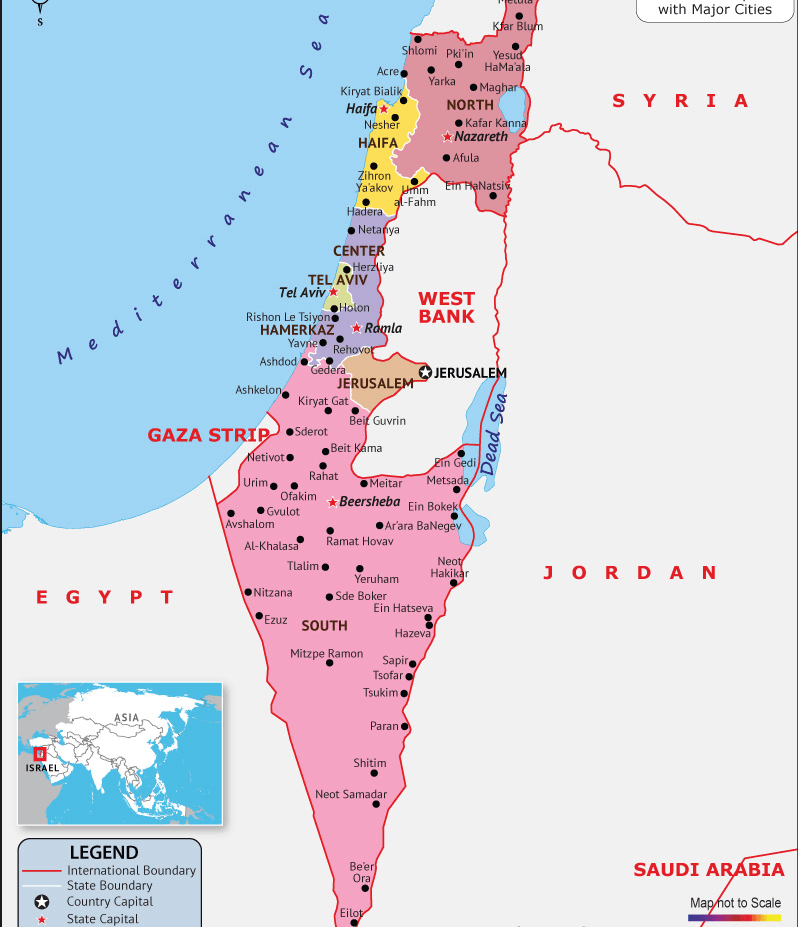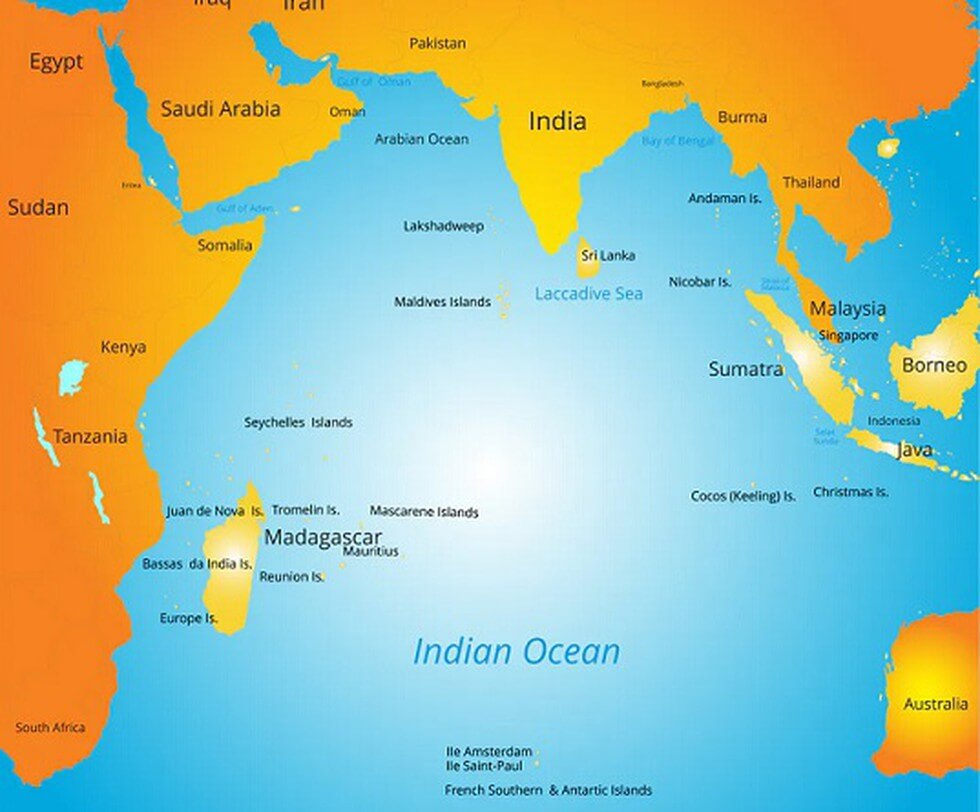The Hindu Analysis
Video
Read Analysis


Headlines
- 'Operation Ajay' set to evacuate Indian nationals from Israel- Page No.1 , GS 2
- UN Security Council reform is a song in a loop - Page No.8 , GS 2
- Spring cleaning - Page No.8 , GS 3
- Women's quota - rhetoric and reality - Page No.9, GS 2
- Remote voting- Page No.9 , GS 2
- Indian Ocean Rim Association (IORA) - Page No. 12, GS 2
- Woman's right to end 26-week pregnancv - Page No.14 . GS 2
'Operation Ajay' set to evacuate Indian nationals from Israel- Page No.1 , GS 2


- India is putting in place a major operation to evacuate its citizens who wish to return from conflict-hit Israel. Announcing the initiative late on Wednesday, External Affairs Minister S. Jaishankar said special chartered flights are being arranged.
- This will be the second evacuation this year, fter Operation Kaveri that brought back several thousand Indian citizens from conflict-torr Sudan in April-May.
- "Launching Operation Ajay to facilitate the eturn from Israel of our citizens whowish to return. Special charter flights and other arrangements being put in place. Fully committed to the safety and well-being of our nationals abroad," posted Mr. Jaishankar on X, formerly Twitter.
UN Security Council reform is a song in a loop - Page No.8 , GS 2

- President Recep Tayyip Erdogan of Türkiye was blunt: "The Security Council has ceased to be the guarantor of world security and has become a battleground for the political strategies of only five countries."
- Even the UN's Secretary-General, António Guterres, issued a stern warning: "The world has changed. Our institutions have not.
- Politically, it is untenable that the five permanent members (China, France, Russia, the United Kingdom, and the United States) enjoy their position, and the privilege of a veto over any Council resolution or decision, merely by virtue of having won a war 76 years ago.
- The diagnosis is clear — the Security Council reflects the geopolitical realities of 1945 and not of today.
- When the UN was founded in 1945 the Council consisted of 11 members out of a total UN membership of 51 countries; in other words, some 22% of the member states were on the Security Council.
- Today, there are 193 member-states of the UN, and only 15 members of the Council - fewer than 8%. The one change ever made to the original Charter was in 1965 when the Security Council was expanded from 11 members to 15 by adding four more elected non-permanent members.
- Any amendment requires a two-thirds majority of the overall membership, in other words 129 of the 193 states in the General Assembly, and would further have to be ratified by two-thirds of the member state
Spring cleaning - Page No.8 , GS 3

- The Goods and Services Tax (GST) Council last Saturday lifted the haze on about a dozen tax treatment ambiguities, some of which have lingered since the indirect tax regime's launch in July 2017, such as the tax on corporate and personal guarantees for bank loans.
- It slashed the GST on molasses from 28% to 5%, with a view to lower cattle feed costs and ease up cash flows for sugar mills so they may pay farmers' dues faster.
- The GST Council is a constitutional body responsible for makingrecommendations on issues related to the implementation of the Goods and Services Tax (GST) in India.
- As per Article 279A (1) of the amended Constitution, the GST Council was constituted by the President. Members:
- The members of the Council include the Union Finance Minister (chairperson), the Union Minister of State (Finance) from the Centre. Each state can nominate a minister in-charge of finance or taxation or any other minister as a member.
- Under Article 279A (4), the Council makes recommendations to the Union and the States on important issues related to GST, like the goods and services that may be subjected or exempted from GST, model GST Laws, principles that govern place of supply, threshold limits, GST rates including the floor rates with bands, special rates for raising additional resources during natural calamities/disasters, special provisions for certain States, etc.
Functions:
Women's quota - rhetoric and reality - Page No.9, GS 2

- In the case of the Women's Reservation Law the reality is that about half of the population are women and they are under-represented in Parliament and State legislative bodies.
- Reports show that, of the maximum allowed 550 seats in the Lok Sabha, only 82, i.e., 15% are represented by women, and out of the 250 members in the Rajya Sabha, only 31, i.e., 12% are women.
- The Global Gender Gap Report places this in a macroscopic context by showing that India ranks 141 out of 185 in its list.
- Article 81 (2) (a) of the Constitution states that the number of seats in the Lok Sabha for a State should have a co-relation with the population of the State and "so far as practicable", the criteria should be the same for all States.
- Article 170, concerning the legislative Assemblies of States, also takes population as the basis for designing constituencies.
- Articles 330 and 332 of the Constitution deal with the reservation of the Scheduled Caste/Scheduled Tribe (SC/ST) in the Lok Sabha and the Legislative Assembly of States respectively.
- And, reservation for women in local bodies, hich materialised through the 73rd and 74th Amendment Acts of the Constitution, and came into effect in 1993, was not contingent on any delimitation exercise for that purpose.
Remote voting- Page No.9 , GS 2

- In late 2022, the Election Commission of India (ECI) proposed a Remote EVM (R-EVM) to address issues related to domestic migrant voting. The ECI held an all-party meeting where most political parties raised different kinds of concerns and suggested that there is need for more discussion on this issue.
- To gauge public trust in the proposed system, a survey by Lokniti-CSDS was conducted in September 2023, involving 1,017 migrants living in Delhi's slums, with 63% men and 37% women.
- The biggest chunk of migrants in Delhi, almost half, come from the neighbouring Uttar Pradesh followed by Bihar (22%), West Bengal (8%) and Rajasthan (7%).
- The surveyed migrants stated employment opportunities as the primary reason for relocation (58%). However, the second most cited reason was family-related reasons (18%) followed by relocation due to marriage (13%). Of the people who moved for family reasons or due to marriage, an overwhelmingly high proportion were women.
- The survey's central question revolved around trust in a proposed remote voting system. Overall, 47% of respondents tended to trust this system, while 31% expressed distrust.
- The ECI for the time being has shelved the idea of introducing R-EVMs because most political parties did not support the idea. The ECI wanted to use these machines to make it easier for people to vote. However, just relying on technology will not solve all the problems.
- Many people do not understand how these new machines work. Democracy works best when people are actively involved in their local elections, but that is not always happening. Giving people easier ways to vote is good, but it is not enough.
- Increasing electoral participation alone does not deepen democracy. We need to teach more people about the values of democracy and make sure they understand whv it is important.
Indian Ocean Rim Association (IORA) - Page No. 12, GS 2


-
About Indian Ocean Rim Association (IORA)
- Establishment: Founded in 1997, IORA serves as a regional forum aimed at fostering understanding and mutually beneficial cooperation through a consensus-based, non-intrusive approach.
- Membership: IORA comprises 23 member states, including Australia, Bangladesh, Comoros, India, Indonesia, Iran, Kenya, Madagascar, Malaysia, Maldives, Mauritius, Mozambique, Oman, Seychelles, Singapore, Somalia, South Africa, Sri Lanka, Tanzania, Thailand, UAE, and Yemen.
- Secretariat: The association's Secretariat is based in Cyber City, Ebene, Mauritius, responsible for managing, coordinating, servicing, and monitoring policy decisions, work programs, and projects adopted by member states.
woman's right to end 26-week pregnancv - Page No.14 . GS 2

- A Division Bench of two women judges of the Supreme Court on Wednesday were split in their opinions about the decision of a married woman to abort her 26-week pregnancy and the Centre's resolve to save the "unborn child".
- Unable to reach common ground, Justices Hima Kohli and B.V. Nagarathna finally referred the case to the Chief Justice of India to form a three-judge Bench.
- Ms. Bhati referred to the Medical Termination of Pregnancy (Amendment) Act of 2021, which extended the deadline for abortion in "exceptional circumstances" to 24 weeks. She said these circumstances allowed medical termination only if it was necessary to save the life of the mother or in case of fatal deformity detected in the foetus. These are the key changes that the Medical Termination of Pregnancy (Amendment) Act, 2021, has brought in:
- The gestation limit for abortions has been raised from the earlier ceiling of 20 weeks to 24 weeks, but only for special ategories of pregnant women such as rape or incest survivors. But this termination would need the approval of two registered doctors.
- All pregnancies up to 20 weeks require one doctor's approval. The earlier law, the MTP Act 1971, required one doctor's approval for pregnancies upto 12 weeks and two doctors' for pregnancies between 12 and 20 weeks.
- Women can now terminate unwanted pregnancies caused by contraceptive failure, regardless of their marital status. Earlier the law specified that only a 'married woman and her husband" could do this.
- There is also no upper gestation limit for abortion in case of foetal disability if so decided by a medical board of specialist doctors, which state governments and union territories' administrations would set up.